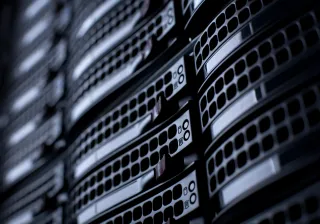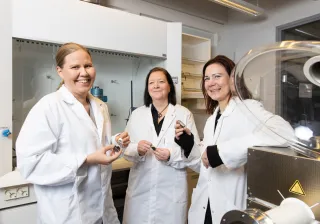Most companies feel the pressure. Business and society are in a massive transition, and we are constantly learning new things about the effects of climate change, nature loss, threats to biodiversity and shrinking habitats. At the same time, national and international regulation is increasing, and investors prioritise sustainable and thus lower risk investments. However, sustainability and responsibility are both deeply complex, systemic areas that form a constantly changing and developing entity. Most organisations know that it is high time to step up their corporate sustainability work, but the key question remains: How to get going and create real impact?
Businesses face increasing pressure to evaluate and develop their current operations to fulfill their role in solving societal challenges, and to prepare for changes that may also bring new business opportunities. However, being able to comprehend more broadly what it means to be responsible and sustainable in the organisation’s specific business area requires an immense amount of knowledge-building – not to mention what it takes to execute a long-term, strategic, and sustained change.
Companies recognise the growing need for up-to-date information on responsibility as well as sparring help to identify and take concrete actions in developing their business and recognise new opportunities. Especially SMEs can struggle in finding the resources and support to focus on developing their sustainability competencies and to plan their corporate responsibility-related actions.
We at VTT see responsibility as a holistic area of development that requires a systemic approach. For companies, the key question is what their strategic stance to responsibility is:
- Whether responsibility is viewed as “only” a requirement that needs to be fulfilled to continue operating?
- Or whether responsibility is a competitive advantage and a chance to stand out?
- Or is the company ambitious enough to re-invent its operations so that they are based on strong expertise in responsibility and set goals that are anchored in principles of sustainability?
To build strategic understanding, companies need, on the one hand, to have a deep comprehension of the industry with an understanding of the present and the future. This requires a close dialogue with internal and external stakeholder groups. On the other hand, for the company to truly drive impactful ideas and to develop sustainable products, services and business models, their actions must be founded on an accurate knowledge of the social, environmental, and economic impacts of their own actions, products, and services.

Corporate Responsibility Accelerator is now looking for new companies that are interested in developing their responsibility efforts through a series of workshops!
The Corporate Responsibility Accelerator piloted by VTT and 4Front in the spring of 2022 offers tools and knowledge to companies that are either just starting out, or already developing and designing their next steps towards responsible and sustainable business.
- The Accelerator focuses on the following themes: changes in regulation, trends of the operational environment, key areas of corporate responsibility, and opportunities for business development, such as circular business models.
- The most important take-aways of the accelerator are tools to evaluate the strategic direction of participating companies, analyse the needs of main stakeholders, conduct materiality assessment, map central risks and opportunities in business development, and draft responsibility goals and roadmaps.
- The Accelerator comprehends four half-day workshops that in addition to the sparring with experts from VTT and 4Front include peer-discussions between the participating companies to help foster new ideas and support the learning process.
The Corporate Responsibility Accelerator helped increase our understanding of the different areas of corporate responsibility and familiarised us with the terminology. The accelerator was also helpful in structuring our knowledge and understanding and taking the lessons further within our company.
The experiences of the first accelerator were excellent: Every participating company was happy to recommend the accelerator to other companies. The workshops helped the companies in increasing understanding of the current state of their responsibility work and offered concrete ideas and tools for continuing the work. According to the feedback, the limited number of participants, regular meetings and assignments together formed an approach that both participants and the organisers felt was effective.
The best results of the accelerator are achieved when the participating companies have a willingness and a drive to create change, as well as the opportunity to take the new ideas into a wider conversation within their companies – as the themes and development needs of corporate responsibility touch all levels of an organization.
The accelerator is meant to be a co-development concept that itself is constantly developed further, and that recognises the current themes and the needs of the participating companies. That is why we are looking for new cooperation opportunities and look for participants to the next accelerator. We would love to continue the discussion on the subject – do not hesitate to reach out!
Contact information:
Katariina Palomäki
Research Scientist
+358 40 580 5620
[email protected]
Nina Rilla
Senior Scientist
+358 40 098 4098
[email protected]
Writers:
Katariina Palomäki [email protected]
Nina Rilla [email protected]
Pietari Pikkuaho
Read more:
Strategic partnership sets VAK on the path toward sustainable growth https://www.vttresearch.com/en/news-and-ideas/strategic-partnership-sets-vak-path-toward-sustainable-growth
The Responsibility Accelerator was developed as part of regional activities of the EU Horizon 2020 funded TetRRIS project that aims to implement responsible research and innovation (RRI) in the territorial level.









